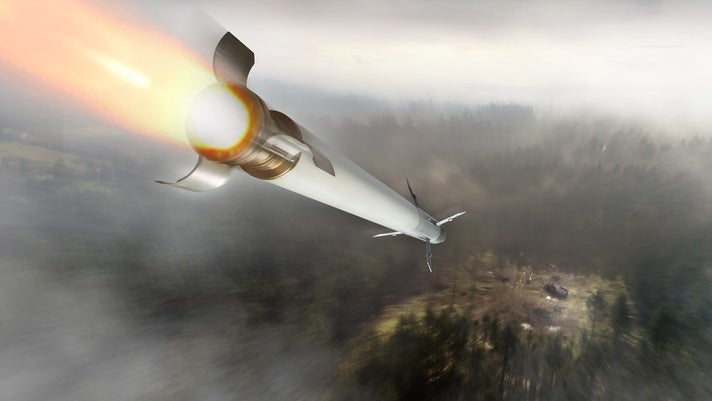
BAE Systems has developed an advanced version of its Advanced Precision Kill Weapon System (APKWS) guidance kit to boost strike capabilities.
The upgraded version of the combat-proven system will improve the range of APKWS guided rockets by up to 30%. This capability will enable the warfighters to hit targets located at a greater distance.
APKWS is said to be the US Government’s only programme of record for guiding 2.75in (70mm) laser-guided rockets. The guidance kit transforms an unguided rocket into a precision-guided system.
The system can be launched from rotary-wing and fixed-wing aircraft and unmanned platforms to hit ground, air or sea-based targets.
The upgraded APKWS guidance kit helps in creating an optimised flight trajectory to enable the rocket to engage targets at a steeper angle of attack.
It will also result in logistical benefits as a single variant of the weapon will be qualified for rotary-wing and fixed-wing aircraft, easing stock management.
BAE Systems Precision Strike & Sensing Solutions vice-president and general manager John Watkins said: “Our customers’ precision strike needs are changing. We’re focused on evolving APKWS guidance kits to provide them with a more capable low-cost product that’s easy to use and known for its accuracy.”
The company manufactures APKWS guidance kits at its production facility in Hudson, New Hampshire. The initial production of APKWS block upgrade guidance kits is expected to start in this quarter.
Recently, BAE Systems secured a $32m contract to upgrade the Finnish Army’s fleet of CV90 infantry fighting vehicles (IFVs).
In a separate development, Rolls-Royce and Purdue University in Indiana have launched a project to develop high-altitude and hybrid-electric engines that will power the next generation of US military aircraft.
Rolls-Royce will expand its facilities in the Purdue Aerospace District, adjacent to the university, to support the development.



